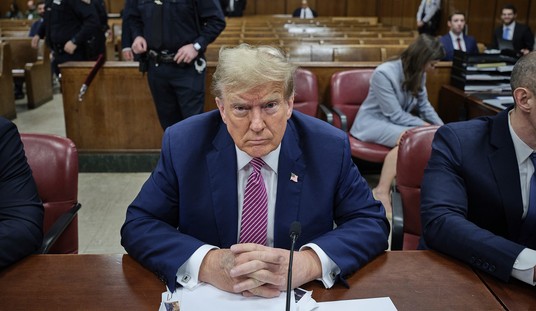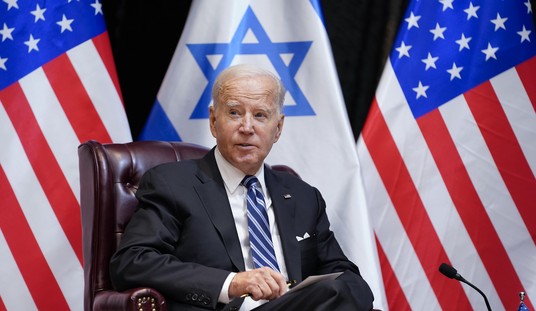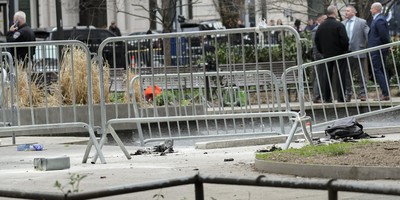Late last week, Russia invaded the sovereign territory of Ukraine, and has been escalating the conflict ever since. For a quick summary of the unfolding events, see Buzzfeed's useful timeline. For a steely-eyed (and fairly depressing) analysis of why Putin has been so brazen and bellicose, read The New Republic's Julia Ioffe -- who was a trenchant observer of the Obama administration's Putin-orchestrated Syria debacle. The United States has looked disoriented and impotent throughout the current ordeal. US intelligence failed to predict Putin's hostile gambit, as Secretary of State John Kerry expressed confidence that the situation was copacetic right up until the nature of the invasion became undeniable. Even then, the administration at first euphemized Russian troops' illegal violation of Ukrainian sovereignty as an "uncontested arrival."
President Obama offered brief, stern-sounding remarks on Friday afternoon; within minutes, he retreated to a DNC party where he officially declared happy hour open. Really. Putin responded to this show of American seriousness by asking the upper chamber of Russia's parliament to authorize military force in Ukraine. Following a series of nationalistic speeches -- many of which denounced the United States -- the resolution passed unanimously, with legislators belting out the Russian national anthem. On Saturday, Obama skipped his team's national security briefing on the growing crisis, opting for briefings from Susan Rice interspersed between phone calls with foreign leaders. The White House defensively insisted that Obama's absence from the meeting was "not unusual." One of his conversations was with Vladimir Putin, in which the leader of the free world expressed "deep concerns," and called on Russia's autocratic leader to pull back his troops. Putin made it perfectly clear that he "reserves the right" to do precisely the opposite:
Vladimir Putin stressed that in case of any further spread of violence to Eastern Ukraine and Crimea, Russia retains the right to protect its interests and the Russian-speaking population of those areas.
A Russian push deeper into eastern Ukraine now seems inevitable. Under this standard, Russia reiterated its lack of respect for international borders, as it clearly demonstrated in its 2008 incursion into Georgia. Russian troops have occupied several regions of that former Soviet state ever since, all under the pretext of "protecting" ethnically Russian populations. That's why other neighboring nations with sizable Russian populations are beginning to worry if they may be the next target of Putin's expansionist designs. For its part, the United States government looks confused and impotent. A weekend analysis in the Washington Post noted that Putin is capitalizing on American incoherence, reasoning that the Crimean provocation was years in the making. In short, weakness is provocative:
Now Ukraine has emerged as a test of Obama’s argument that, far from weakening American power, he has enhanced it through smarter diplomacy, stronger alliances and a realism untainted by the ideology that guided his predecessor. It will be a hard argument for him to make, analysts say. A president who has made clear to the American public that the “tide of war is receding” has also made clear to foreign leaders, including opportunists in Russia, that he has no appetite for a new one. What is left is a vacuum once filled, at least in part, by the possibility of American force. “If you are effectively taking the stick option off the table, then what are you left with?” said Andrew C. Kuchins, who heads the Russia and Eurasia Program at the Center for Strategic and International Studies. “I don’t think that Obama and his people really understand how others in the world are viewing his policies.” Rarely has a threat from a U.S. president been dismissed as quickly — and comprehensively — as Obama’s warning Friday night to Russian President Vladimir Putin.
Recommended
Obama's Ukraine stumble isn't an isolated incident, the Post piece explains:
The position Obama is in, confronting a brazenly defiant Russia and with few ways to meaningfully enforce his threat, has been years in the making. It is the product of his record in office and of the way he understands the period in which he is governing, at home and abroad. At the core of his quandary is the question that has arisen in White House debates over the Afghan withdrawal, the intervention in Libya and the conflict in Syria — how to end more than a dozen years of American war and maintain a credible military threat to protect U.S. interests. The signal Obama has sent — popular among his domestic political base, unsettling at times to U.S. allies — has been one of deep reluctance to use the heavily burdened American military, even when doing so would meet the criteria he has laid out...But Obama’s rejection of U.S. military involvement in Syria’s civil war, in which 140,000 people have died since he first called on President Bashar al-Assad to step down, is the leading example of his second term. So, too, is the Pentagon budget proposal outlined this past week that would cut the size of the army to pre-2001 levels. Inside the West Wing, there are two certainties that color any debate over intervention: that the country is exhausted by war and that the end of the longest of its post-Sept. 11 conflicts is less than a year away. Together they present a high bar for the use of military force. Ukraine has challenged administration officials — and Obama’s assessment of the world — again.
Obama's focus has always been on advancing a liberal domestic policy agenda, with foreign policy simmering on the back-burner. This administration has seemed determined to present itself as the anti-Bush, exceedingly hesitant to exercise American hard power, and focused on restoring America's image in the world by adopting a more thoughtful global posture. One of the centerpieces of this "smart power" approach was a "reset" in US-Russo relations, a policy that lies in tatters. America has sacrificed much in exchange for a parade of Russian treachery, vis-a-vis Syria, Snowden and now Ukraine. The "reset" has clearly benefited the Kremlin. What, if anything, has the US gained? For a sense of how cynical and calculating Putin has been in advancing his interests while stifling ours, re-read his New York Times op-ed on Syria, published on September 11 of last year. As Obama pondered strikes against the Moscow-backed and -armed Assad regime, Putin averred that military action requires "consensus" within the international community. That doctrine of restraint and consensus plainly didn't apply to Russia when it invaded Georgia, however, and it's been discarded again in Crimea.
Now a debate is underway as to how the United States ought to respond to the Russian invasion, as some Ukrainian leaders are blasting America's "pathetic" response. Complicating matters is a 1994 treaty signed by the US, UK, Russia and Ukraine. In exchange for Ukraine surrendering its Soviet-era nuclear weapons, the western powers pledged to defend Ukraine's territory. The Obama administration reaffirmed these "security assurances" in 2010. If the US does little to defend Ukraine today, how will that reflect on America's word in the eyes of friends and foes alike? And what impact will that have on the efficacy of diplomacy? Sen. Marco Rubio suggests eight retaliatory steps the White House could take that fall short of military intervention, several of which already appear to be taking place. John Kerry said that "all options" remain on the table, while offering up bizarre condemnations like this:
Invasion is not the act of someone who is strong. It is the act of someone who is weak. @FaceTheNation
— John Kerry (@JohnKerry) March 2, 2014
ABC News' George Stephanopolous pressed Kerry on whether Putin is listening to Obama at all:
This seems like a fair moment to recall Obama and Kerry's outright mockery of Mitt Romney, who stated during the 2012 campaign that he viewed Russia as America's top geopolitical foe -- which the press ridiculed as a "gaffe." Who's laughing now? Recent polls have shown that majorities of Americans believe Obama's foreign policies are too weak, and that foreign leaders don't respect him. Vladimir Putin is validating those assessments in living color.
UPDATE - Another Russian escalation:
CNN BREAKING: Russia issues ultimatum to Ukrainian forces in Crimea to clear out by Tuesday morning or face ‘military storm'
— Vaughn Sterling (@vplus) March 3, 2014

























Join the conversation as a VIP Member